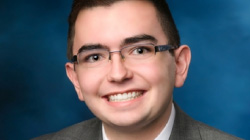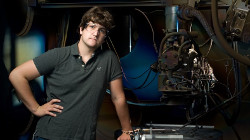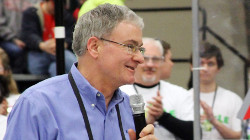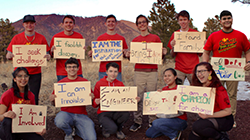INSPIRATION IS EVERWHERE
Featured Image
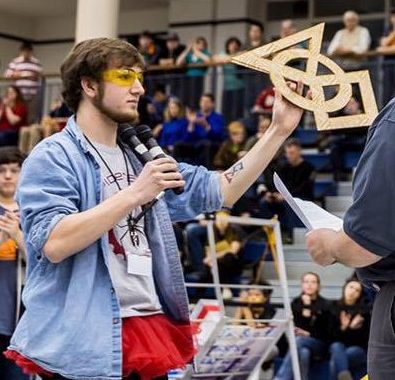
Display Title
FIRST is about constantly growing, learning, and improving
Sub Title
Connor Tinker
FIRST Alum, Volunteer, & Mentor
FIRST alum Connor Tinker is from FIRST Robotics Competition Team 4067 “The Incredible Hawks” and FIRST Tech Challenge Team 3113 “Some Disassembly Required” in Clarksville, Maryland. An engineer pursuing a career in planetary sciences, Connor credits FIRST and his team mentors with encouraging him to never stop learning and teaching him how to truly solve problems. “My mentors are my heroes. I did not know it then, but I definitely know it now,” he said. “I know the world to be a challenging place, and I’m glad my mentors took the time to teach me how to fish, instead of fishing for me.”
What did you do after becoming a FIRST alum?
After graduating from high school and becoming a FIRST alum, I started attending Purdue University. I will graduate in 2021 with two bachelor’s degrees: mechanical engineering and planetary sciences. I work for various organizations, most focused on NASA missions for the exploration of other planetary surfaces. I also spent some time as an intern at NASA Headquarters and was a recipient of the Presidential Volunteer Service Award.
In the future, I plan to get my PhD in Planetary Sciences because the endless knowledge and vast world in space fascinates and inspires me. I seek to apply my engineering skills to developing the next generation of spacecraft and their scientific payloads. Whether I end up in the private, government, or academic sector, my plan is to keep learning as much as I can and then contribute the best work I can toward our understanding of the universe, the celestial bodies within it, and the ways we can utilize its functionality to our advantage.
What advice do you have for current FIRST participants?
What can I say now that would truly be capable of conveying the sheer mass of knowledge, experience, and guidance I have seen over the last few years through FIRST? I offer this simple phrase: “Life is not measured by percentage.” As members of FIRST, you are excellent problem solvers, which ultimately means you will do everything you can to achieve the A’s and do your best. There is much to be learned from failure; perhaps, there is more to learn from failure than success. Limiting ourselves to 100 percent doesn’t allow for more growth. You are now and will always have infinite potential within you. It’s all circular. The more you learn, the more you can learn.
FIRST taught me to never stop learning and I will always make it my goal to continue questioning things and taking in any and all information available to push boundaries because life is limitless. If you want to make a difference in the world, you must be different; you must do different. My advice would be to always seek improvement instead of perfection.
Prepare young innovators for the future
with FIRST Robotics Competition
How has your FIRST experience impacted your post-graduation life?
My mentors are my heroes. I did not know it then, but I definitely know it now. I know the world to be a challenging place, and I’m glad my mentors took the time to teach me how to fish, instead of fishing for me. FIRST gives you the skills to make a real impact in the world. I did not realize how important this was until I got to college and started to be my own entity. My mentors would often enjoy watching us fail because it was when they saw the most improvement.
FIRST is not about awards; FIRST is not about getting 100 percent; FIRST is about constantly growing, learning, and improving. A mentor’s job is to facilitate this growth; whether it be regarding leadership techniques or other soft and hard skills. A mentor’s job is to help students learn on their own, and sometimes, letting students go down a path even if you know it ends in failure. I learned this the hard way. I always believed that if I warned people, if I told them what happened due to my experiences, they would be learning; however, the best mentors allow this process to happen naturally and encourage the process to expand so students begin to seek more advanced goals and more challenging tasks.
You shared that you’ve made and kept great FIRST friends – any advice to current participants on how to do that?
Networking is KEY. Networking among professionals, in your social lives, in school, everywhere. We build networks because alone we are insufficient. I strongly believe in collaboration. In order to build a strong network, you must be kind, helpful and friendly. Building a network is only useful if this network is formed by individuals who respect you and who are willing to support you. You must offer things to your network, just as they do you. My FIRST friends and I stay connected because we know that together we can achieve more. It is now, more than ever before, easy to stay connected with people online. Social media is a basic starting point, but I have found it most beneficial to attend FIRST events and volunteer while also getting the chance to check in with old and new friends.
